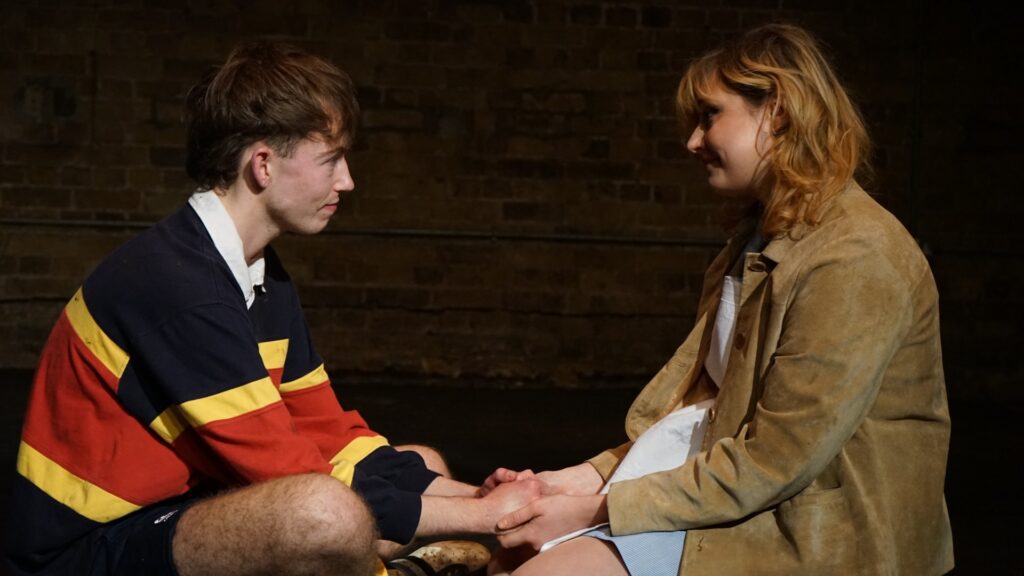Adam Somerset reports on political discussions at Hay Festival.
“It’s nine a.m. Bank Holiday Monday. We’re sitting in a tent in the country and talking about politics. Don’t say that we are representative.” The voice is that of David Aaronovitch, broadcaster and Times columnist. His fellow panellists are Prospect Editor Bronwen Maddox in the Chair, Peter Hitchens of the Mail and Johann Hari of the Independent. As customary at the opening of any Hay event acknowledgement is given to the sponsor of the event. “I have been told by the organisers” says Prospect Editor Maddox “to say that this event is brought to you in association with Prospect Magazine.”
Cue an audience chuckle at 9:01. In truth Event 121, entitled “Election 2015: How Was It for You?” is cause over its fifty minutes for more chuckle than real enlightenment. The tone and structure are swiftly set. Independent and Mail are personal, bilious and incandescent. Their natural audience is the converted, whose representatives are thin on the ground this somewhat chilly morning at Hay. Notwithstanding Aaronovitch’s opening comment Hay’s sizeable Telegraph Stage tent is packed tightly full.
Politicos and pundits looked with admiration to the energy and turnout at the referendum last September. Having myself dipped into Scotland briefly for a public event it was obvious. If there is something to get excited about, then political engagement is high. One of the most telling comments I have heard, over more decades of election-watching than I like to remember, was at a public consultation meeting in Ceredigion’s Penmorfa Council Chamber. “You’ll consult us about everything,” said a loud voice to the technocratic trio upfront, “except the things that matter to us.”
Politics reduced to small technocratic or statistical difference is tedious. The most insipid encounter of the 2015 campaign had an interviewer quizzing Nicola Sturgeon on minute statistical differences in the increase in education budgets between Holyrood and Westminster. In fact hardly an interviewer could be troubled to look to the reality as to how the SNP in fact governs.
On the Hay floor the Mail representative is similarly detached from the reality of politics. “There’s no reason for a Labour government to be elected,” he says, “because we have a totally Blairite government anyway.” It is not just that the Mail heartily dislikes the Conservative Party of 2015 but does not know much about it. A first-term politics student will learn that the Conservative Party have never really done ideology: it is still the party of Locke and pragmatism. It does power. The brigade of the old and the crusty of my generation who fulminate over the eighties see it through a romantic lens of class difference. The first enemy back in 1979 was indeed the enemy within and it was in the Tory party. The purging of the landed gentry’s influence on Conservatism, which opened with Baldwin’s eclipsing Curzon, was completed sixty years on. Look only to the Cabinet of 1979 and compare it to that of five years on.
The Mail does not get it. Britain is immeasurably a more tolerant and relaxed place than a generation ago- incidentally also a happier place- unanimously recorded by every social attitudes survey. Of course the Conservative Party is going to legitimise the fact of the diverse sexuality of its electorate because that is how it is. As likely as not it will be Prime Minister May of the Conservative Government of 2025 who will legalise cannabis. That is the point about the future; it is always inevitable after the event and incredible beforehand.
The Mail does get it right on one policy. It is an entirely novel strain of conservatism that vows to seize the assets of twelve hundred plus charities from the governance of their trustees. The reduction of Housing Association housing stock drives a bulldozer through their business plans as borrowing capacity relates to their asset base. It is grotesque that a thirty-six percent vote in one country only bestows this power. On the other hand maybe there are twelve members willing to be thinking women and men of judgement. The First Minister in the afternoon deplores the habit of the parties to embrace those with no experience of work. He is too tactful to add that his own party adores them, as repeatedly attested in the Mullin Diaries. The Whips are identical, irrespective of party; opinion-free lobby obedience is the most prized quality. That is why Members with no employment prospects outside are so desirable. Look to how the monolith-maker intended to ban outside sources of income. Absolute fealty to party trumps good policy. But then Mullin, Woolaston, Flynn, Marshall-Andrews are my kind of parliamentarian.
Back on the Hay platform the Independent extrapolates the political condition of Britain from a family member in a minor Lancashire town. Without a doubt it is a life that is not enviable at all but the solution is facile. Pundits neither know, nor express much curiosity in knowing, for instance the operators of small businesses. The First Minister in the afternoon tent says it openly. His party in 2015 had nothing to say to the self-employed, the fastest-growing source of employment.
Hundreds of thousands of small companies are the walking dead anyway, even with interest rates on the floor. The conversation to hike wages by diktat will kill them instantly. To his credit the First Minister of Wales also makes mention of the hopeless productivity disadvantage against other nations. The same theme was prominent in the first election I can recall – Wilson versus Heath – and went hardly mentioned over the campaign. If the loser in Thanet were ever to get his way and purge those Polish doctors and accountants from picking fruit and veg in Lincolnshire the farms would not flourish; they would go bust.
“You two,” says Times, “are two sides of the same coin. You see Britain in the same way but have different conclusions. You, Johann, would like to take Britain to 1975 and you, Peter” – Times here makes a nicely calibrated pause – “to 1875, or 1775”. Hay ripples with laughter and in truth to be here on a far-from-warm Bank Holiday Monday is to feel cheer and hope. Yes, political engagement when it is a tepid topic like the Police and Crime Commissioner vote plummets. But when it matters it rises. Look to the European Elections of 2014 when a Poujadist threat in Southwest Wales had a galvanic effect. The same thing happened this May when Labour loyalists of Margate knew that what they did not like mattered a lot more than they what they did like. That is something that the polling has to yet to catch up on. Even if participation peaks at two-thirds that is way beyond any turnout for the Presidency across the Atlantic.
As for the decision of the electorate on 7th May Independent declares that we poor saps are in the grip of rightwing media billionaires. It is similar to the reaction of the former Member for Bedwellty, who admittedly did suffer genuine bile and bias at a time when print media was more read. The Independent this time has Times shaking his head. He does not say that no-one under thirty reads print newspapers. “The most influential media corporation is the BBC,” he says conclusively. Frankly, from the intellectual depth on display, it is not surprising that when the Independent last changed hands its price was only a quid.
The questions lobbed from the floor include one that is predictable and futile. Might it all have been different had the Labour party members and MPs had their choice for leader? It is a question with small meaning in a world that rests on a boundless chain of random contingency. I have only taken the Kings Cross to Edinburgh express once, the date a Saturday morning in March 1994. At the first stop, in York, John Smith came on board heading home. Two months on he was dead, two months after that was the lunch at Granita, and everything changed. The truths of politics rarely get an airing. The media wants drama, while much of what the state does is dull grind and continuity. As for the other side McMillan had it right when he probably never said “events, dear boy, events”. The future is all too unnervingly unpredictable.
But I will stick by the cannabis prediction. It has been rumbling on for decades. The Callaghan Cabinet split down the middle, university versus non-university members with the older guard slightly ahead. Labour might adopt a Roy Jenkins-like strand of social liberalism ahead but the Home Office does have a habit of capturing its Ministers. Look to the Home Office of 2015 and its determination to hobble recruitment for Britain’s pretty paltry tech sector or wreck universities’ wooing of students from abroad.
The Home Office has form. John Campbell’s great biography of Jenkins is sharp on this. The time just before the laudable Jenkins’ tenure had a small echo in my own childhood home. A local college had an arrangement with the city of Braunschweig whereby students could part-study and part spend time au pairing in a family home. Every one who came, twice a year, was fatherless, the conscripts from that part of Saxony having all been sent to the Russian Front. The only father who got back home only did so because Stalingrad had left him minus a leg. My mother recounted a Home Office representative in our home pointing his finger in rage at a quivering German teenager “I’ll have you out! If it’s the last thing I do I’ll have you out of this country!” Some things change and some do not.






Comments are closed.